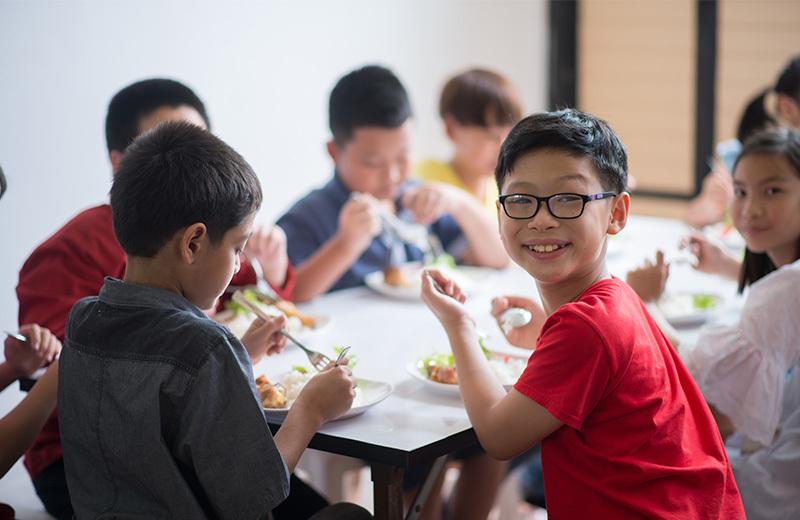Growing up can be tough. Every day involves navigating changing physical, hormonal, emotional, and social situations. When a young person is worried about their access to food, is hungry, or is experiencing mental health difficulties, they may feel embarrassed, ashamed, or disconnected from their peers and community. The distress of living in a household that is food insecure has unique effects to youth’s health and can impact school performance, learning, social relationships, and their own self-image.
Facts to consider
- Nearly six million Canadians live without reliable access to food due to financial strain, this includes one in four children in Canada.
- Children and adolescents in food-insecure households are much more likely to see a health care professional for mental health than their peers with reliable food access.
- Parents living with food insecurity show resourcefulness and sacrifice to protect and feed their children. Often, parents will reduce their food intake or go without eating.
- Household food insecurity is not a budgeting, food skills, or knowledge issue. Many factors outside of someone’s control can affect their ability to afford and access food.
- Household food insecurity and mental health can affect different people in different ways. It’s important to remember that the assumptions we make are often incorrect and can cause harm.
Building supportive relationships and environments
Household food insecurity and mental wellbeing challenges in children and youth are complex problems that are not easily solved. However, if you work with children and youth, you may be aware of ways to create inclusive spaces for youth to help promote a valuable sense of belonging and reduce harm:
For educators
- Focus on providing positive opportunities for youth to grow, cook, prepare, or taste foods.
- Avoid labeling foods as “good” vs “bad”. This can be stigmatizing and triggering, especially for youth who have limited food access, are at higher risk for disordered eating, experience low self-worth or anxiety.
- Avoid using food as a reward. This sends the message that food should be “earned” and can be distressing for youth.
For meal and snack programs
- Aim to remove stigma in your food programs by providing the same meal or snack to all children in your program or school.
- Allow second helpings without commenting on how much a child or teen is eating. They may be making up for a lack of consistent access to food.
- Do not comment on the food students bring from home. There are many factors that influence food access and availability. If there are concerns with students not having enough food, consider connecting to a school counselor or with parents or caregivers to explore possible supports.
For health care providers
- Inform your care with the social determinants of health, including screening for household food insecurity.
- Consider food insecurity as a risk factor for disease.
- Identify resources in your community that link youth to food, money, or social and mental health support. Make connections when requested by a youth or parent.
For community groups
- Engage youth, who are the experts in their own experience, in the planning of programs to help nourish their bodies and friendships.
- Provide opportunities for youth to enjoy growing, cooking, and eating food together. Food provides benefits beyond its nutrition, including connections to one’s culture and feelings of belonging.
- Seek funding opportunities to help support and prioritize community food security and social connections among youth and between generations.
- Offer snacks to everyone at events and gatherings for children and youth, if budget allows.
Have concerns? Consider engaging your health care team
If you’re a parent or guardian and have your concerns about your child’s, or your own mental health and food security, consider reaching out to:
- A doctor or nurse practitioner in your community
- The Northern Health Virtual Clinic
- Your Indigenous health centre
- Others in your health care team who can help (such as dietitians, social workers, youth workers, Aboriginal patient liaisons)
If you or your child/youth are in crisis, please call:
- Suicide crisis: 1-800-SUICIDE (1-800-784-2433)
- Mental health issue: 310-6789 (24 hours)
- KUU-US Aboriginal crisis line: 1-800-588-8717 (24 hours)
- Emergency: 9-1-1 or other local emergency number














Comments